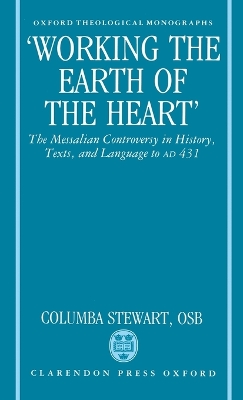Oxford Theological Monographs
1 total work
This study provides a complete reassessment of the Messalian controversy of the fourth and fifth centuries AD. The Messalians were an ascetic group, their name (of Syriac derivation) meaning `praying people'. Their extraordinary claims and graphic spiritual vocabulary were considered heretical by the early Christian Church and were condemned at the Council of Ephesus in 431.
Dr Stewart reconstructs the history of the controversy from its beginnings, carefully avoiding all previous suppositions and flawed methodologies. He considers in depth the spiritual vocabulary which lies at the root of the controversy and which can also be found in the Greek pseudo-Macarian writings. He proves that the pseudo-Macarian vocabulary can be traced to a Syriac milieu and demonstrates this by comparisons with such early Syriac texts as the writings of Ephrem, Aphrahat, and especially
the anonymous Liber graduum. In this light, the claims of the Messalians are shown to result from the influence upon Greek Christian culture of an equally orthodox tradition, the Semitic Syriac culture of the Christian East. Christian writers of both cultures were determined to show others a way to
'work the earth of the heart', an image favoured by pseudo-Macarius for its evocation of the patient labour of asceticism. The controversy was thus not indeed a question of heresy, but of misperceived differences of culture and of spiritual idiom.
Dr Stewart reconstructs the history of the controversy from its beginnings, carefully avoiding all previous suppositions and flawed methodologies. He considers in depth the spiritual vocabulary which lies at the root of the controversy and which can also be found in the Greek pseudo-Macarian writings. He proves that the pseudo-Macarian vocabulary can be traced to a Syriac milieu and demonstrates this by comparisons with such early Syriac texts as the writings of Ephrem, Aphrahat, and especially
the anonymous Liber graduum. In this light, the claims of the Messalians are shown to result from the influence upon Greek Christian culture of an equally orthodox tradition, the Semitic Syriac culture of the Christian East. Christian writers of both cultures were determined to show others a way to
'work the earth of the heart', an image favoured by pseudo-Macarius for its evocation of the patient labour of asceticism. The controversy was thus not indeed a question of heresy, but of misperceived differences of culture and of spiritual idiom.
